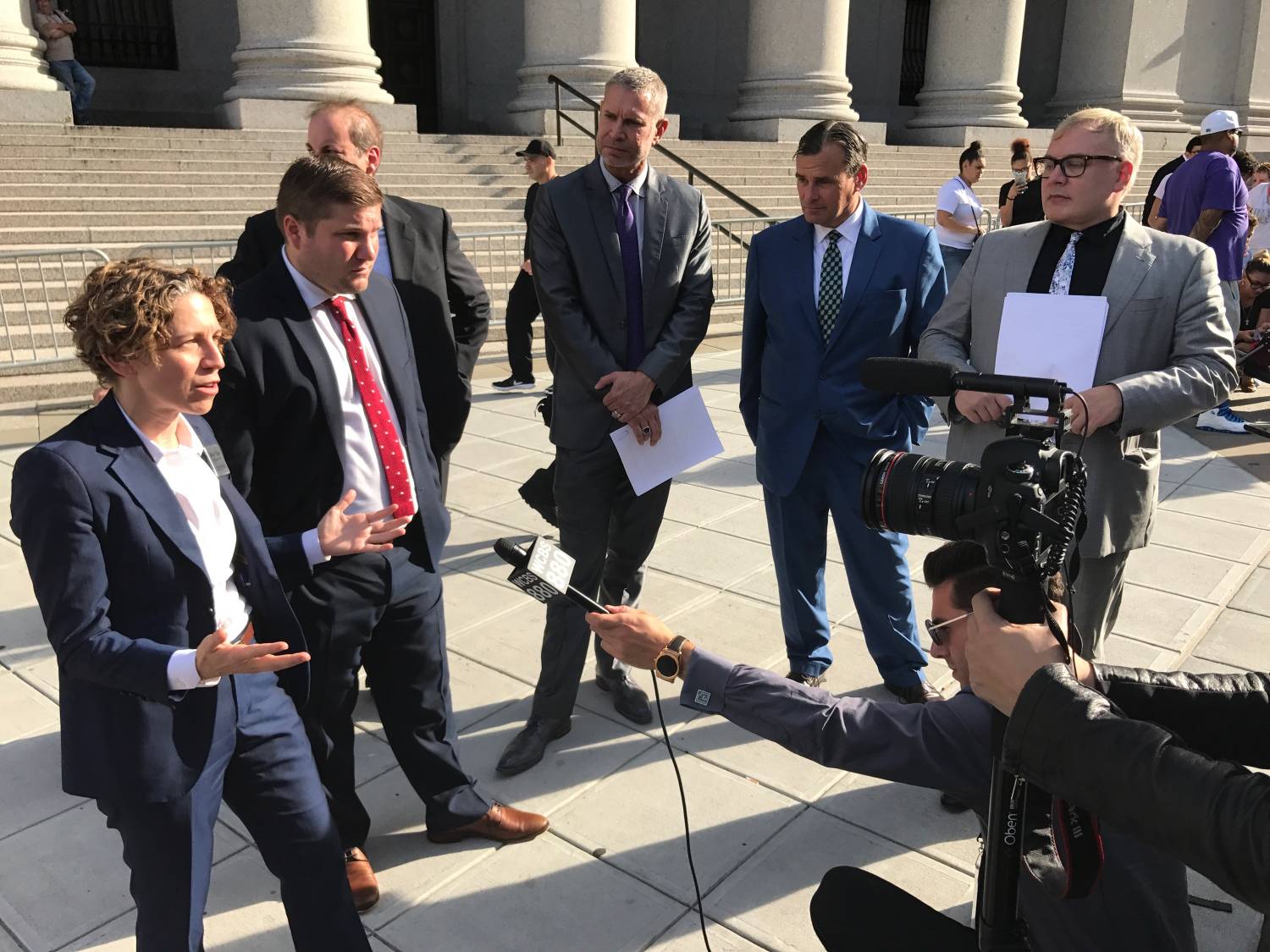Lambda Legal argued before the full U.S. Court of Appeals for the Second Circuit, supporting the estate of Donald Zarda, a New York skydiving instructor who was fired from his job because he was gay.
In today’s hearing, Lambda Legal urged the Second Circuit to reexamine two of its precedents and argued that sexual orientation discrimination is a form of sex discrimination, which is already prohibited under Title VII of the federal Civil Rights Act. Several federal trial courts, the Seventh Circuit, and the Equal Employment Opportunity Commission (EEOC), which also argued today, agree: employers cannot discriminate against employees based on gender stereotypes about who men and women should be attracted to, date, or marry.
“No one should be fired, forced from their job, or passed over for promotions because they are lesbian, gay, or bisexual. The Second Circuit can help fix this,” said Greg Nevins, Employment Fairness Project Director for Lambda Legal, who argued the case today. “We are hopeful that the Second Circuit takes this rare opportunity to rehear this case and correct and clarify its outdated precedents.”
“The momentum towards establishing once and for all that LGBT people are able to work without repercussions for who they are or whom they love would be overwhelming if the Second Circuit joins the Seventh Circuit in affirming that the Civil Rights Act protects LGBT employees,” said Lambda Legal CEO Rachel B. Tiven.
In a landmark case very similar to the one before the Second Circuit today, the full Seventh Circuit in April overruled several of its precedents and held that the Civil Rights Act does cover sexual orientation. In March, the Eleventh Circuit reached the opposite conclusion, and earlier this month Lambda Legal appealed that case to the Supreme Court.
The Supreme Court petition concerns Jameka Evans, a Savannah, Georgia, security guard who was harassed at work and forced out of her job because she is a lesbian. It seeks a nationwide ruling that sexual orientation discrimination violates Title VII of the Civil Rights Act.
In addition to Lambda Legal and the EEOC, the Department of Justice argued – in opposition to civil rights coverage – in today’s Zarda case. “With circuit courts already split, and different federal agencies weighing in on opposite sides,” Tiven commented, “today’s argument for Donald Zarda might well have been a dress rehearsal for the Supreme Court argument for Jameka Evans.”
Background:
In September 2010, Donald Zarda, a skydiver, filed a lawsuit in U.S. District Court for the Eastern District of New York against his former employer, Altitude Express, Inc., claiming that the company violated Title VII by discriminating against him because of his sexual orientation. The district court that refused to let him proceed with his claim that Title VII protects him as a gay man. Tragically, in October 2014, Zarda died in a base jumping accident in Switzerland and he missed the start of his trial. He is survived by his sister, Melissa, and former partner, William, the executors of his estate.
In January 2017, Gregory Antollino argued an appeal on behalf of Zarda’s estate, asking a three-judge panel of the Second Circuit to revisit its precedent and hold that sexual orientation discrimination is a form of sex discrimination and therefore illegal under Title VII. Lambda Legal supported his effort with a friend of the court brief. In April, 2017, after the three-judge panel denied Zarda’s claim, Antollino, with a substantial contribution from Lambda Legal, successfully petitioned the entire Second Circuit to rehear the case—only the third en banc review the court has granted since January 2011. Last month, the court ordered that Lambda Legal present oral argument, keeping with other federal appellate courts that have heard from the EEOC and Lambda Legal when considering Title VII’s coverage of sexual orientation discrimination.
The case is Zarda v. Altitude Express.
The Zarda case is about discrimination based on sexual orientation, but it is important for transgender people’s rights as well. Lambda Legal has litigated employment discrimination cases for transgender as well as lesbian, gay, and bisexual people; and the arguments in favor of sexual orientation coverage under Title VII are built upon the victories won by transgender people in cases like Glenn v. Brumby.





